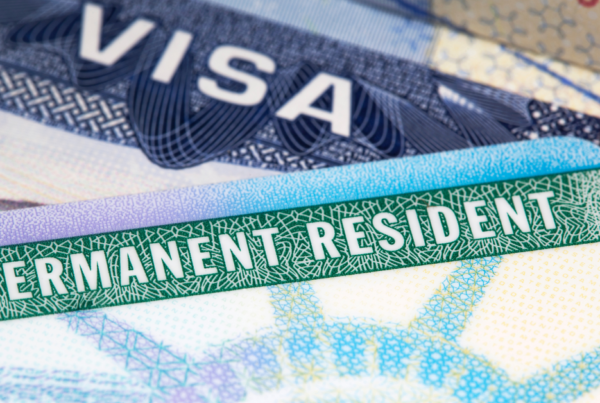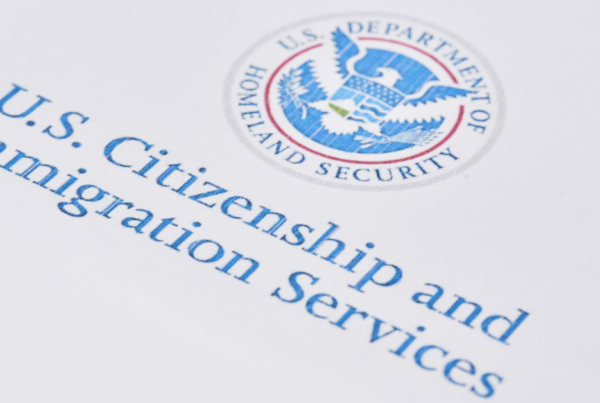
If you are an immigrant living in the US or who has the intention of living in the U.S. and you have an upcoming visit to the immigration office, you may be wondering what to expect. As a top Pasadena immigration attorney, I have spent a good deal of time working with my clients as we prepare for their immigration office visits, so today I wanted to share a little info to help you to understand what to expect during your upcoming visit.
Immigration Office: What to Expect During Your Appointment
Why Go to the Immigration Office?
There are a number of reasons why you may need to visit the immigration office, let’s start by taking a look at them…
- Citizenship interviews
- Responding to a request for evidence
- Biometric appointments for your citizenship/green card applications
- Appointment scheduling
- Payment of fees associated with your application for citizenship/green card
Most immigration field offices do not accept clients without appointments because of the severe backlog in the immigration system. You can, however, use the online USCIS website to research immigration and to download immigration forms or the USCIS telephone hotline to ask questions related to the immigration process (although their ability to provide information is limited).
What Should You Expect?
What you should expect during your visit to immigration is going to depend largely on what the purpose of your visit is. There are, however a few things that will remain the same no matter what your reason for visiting, for example:
Security
You should expect to go through security screening when you first arrive. This includes having your purse or briefcase scanned and possibly searched by hand and you will have to go through metal detectors. This process is designed to keep the office safe and anything that may be construed as a threat or weapon will be confiscated.
Rules and Regulations
The immigration field office is considered to be a federal building. As a federal building, there is a list of items that are prohibited from being taken into the office. This list is compiled by the Department of Homeland Security and it reads as follows:
4.1 Firearms and Projectile Weapons
The list of prohibited firearms and projectile weapons includes, but is not limited to:1. Firearms or similar device that expels a projectile through the action of an explosive
(unless meeting the exemptions listed in 18 U.S.C. § 930(d));
2. BB or pellet guns;
3. Compressed air guns;
4. Antique firearms;
5. Flare guns;
6. Realistic replica or toy firearms (unless meeting the exemptions listed in 18 U.S.C. §
930(d));
7. Spear guns;
8. Starter pistols;
9. Stun guns, cattle prods, dart-firing stun guns, and other electric weapons or controlled
devices;
10. Ammunition, shotgun shells or firearm cartridges, black powder, smokeless propellant
powder (unless meeting the exemptions listed in 18 U.S.C. § 930(d)); and
11. Slingshots.4.2 Bladed, Edged, or Sharp Tools or Implements
The list of prohibited bladed, edged, or sharp tools, or implements includes, but is not limited to:1. Axes and hatchets;
2. Bows and arrows;
3. Ice axes/ice picks;
4. Throwing stars (martial arts);
5. Knives, sabers, swords, daggers, and other bladed devices with a blade of more than 2 ½
inches (unless meeting the exemptions listed in 18 U.S.C. § 930(d)); and
6. Razor-type blades such as box cutters, utility knives, and razor blades not in a cartridge,
but excluding safety razors (unless meeting the exemption listed in 18 U.S.C. §
930(d)(3)).4.3 Club-like Items and Striking Devices
The list of club-like items and striking devices includes, but is not limited to:1. Billy clubs;
2. Blackjacks;
3. Brass knuckles;
4. Chains in excess of 12 inches (Jewelry exceptions can be made);
5. Night sticks (unless meeting the exemptions listed in 18 U.S.C. § 930(d)); and
6. Martial arts weapons, including nunchucks and kubatons.4.4 Destructive Devices, Explosives, or Combustible
Chemical Compounds and Mixtures
The list of destructive devices, explosives, or any chemical compound or mixture that has a
property of yielding readily to combustion or oxidation upon the application of heat, flame, or
shock includes, but is not limited to:1. Blasting caps or detonators;
2. Dynamite, nitroglycerin, trinitrotoluene, ammonium nitrate, and others;
3. Fireworks;
4. Gunpowder;
5. Hand grenades, mine, bomb, rocket, missile, pipe bomb, plastic explosives;
6. Realistic replicas of explosives or similar devices;
7. Explosive or expanding gases;
8. Gas torches; and
9. Flammable Liquids (i.e., gasoline, turpentine, and paint thinner) (unless meeting the
exemption listed in 18 U.S.C. § 930(d)(3)).4.5 Disabling Chemicals and Other Dangerous Items
The list of disabling chemicals and other dangerous items includes, but is not limited to:1. Mace, pepper spray, tear gas, tear gas gun, or other chemical spray designed for selfdefense (unless meeting the exemption listed in 18 U.S.C. § 930(d));
2. Spillable batteries, except those in wheel chairs or similar devices used by a mobility
impaired individual;
3. Spray paint (unless meeting the exemption listed in 18 U.S.C. § 930(d)(3)); and
4. Poisonous gases.
The Environment
When you walk into the building, you may be faced with a crowded waiting room, but the new organization of immigration offices has created a more streamlined process so most people don’t experience very long wait times when they show up for their appointment.
The office is usually very quiet and provides you with a seating area where you can wait to be called for your appointment. Before sitting, be sure to check in for your appointment so that they know that you are there.
Interpreters
If you need an interpreter for your appointment with the office, be sure that you bring your own interpreter AND that they meet the requirements set out by the USCIS. These requirements are that an interpreter should be…
- Sufficiently fluent in both English and the interviewee’s language.
- Able to interpret competently between English and the interviewee’s language.
- Able to interpret impartially and without bias.
There are also regulations that state that the following individuals may not serve as interpreters:
- Minors under age 18 (an exception for good cause may be granted for those age 14-17).
- Witnesses (unless an exception for good cause is granted). A witness is anyone who gives a personal account – orally or in writing – of something seen, heard, or experienced.
- Attorneys and accredited representatives of the interviewee.
Have Questions For An Immigration Attorney Prior to Your Immigration Office Visit?
If you have an upcoming visit to the immigration office and need to consult an immigration attorney prior to your visit, Nelson and Associates can help! To arrange for your consultation, just call our office at 626-683-3451 as soon as possible.



